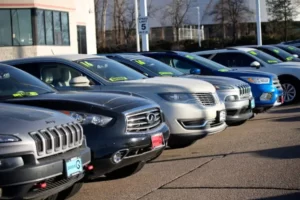This is The Takeaway from today’s Morning Brief, which you can sign up to receive in your inbox every morning along with:
- The chart of the day
- What we’re watching
- What we’re reading
- Economic data releases and earnings
The first half of 2023 will come to a close on Friday.
And when it does, one of Wall Street’s big predictions for 2023 will officially be a bust — the stock market did not fall and the US economy did not enter recession.
When the year began, we flagged a “surprising consensus” among Wall Street strategists, many of whom expected a dip in the stock market in early ’23 as the economy fell into a downturn before a rebound over the second half of the year.

morning brief image
Instead, investors have been treated to a stock market rally accentuated by AI hype, a pause in the Fed’s rate hikes, a cooldown in inflation, and growing optimism that a seemingly inevitable recession may be forestalled.
And writing in a note to clients on Monday, Neil Dutta at Renaissance Macro pulled no punches when taking to task his peers on the Street who have called for an impending recession for a year.
“Wall Street has had recession on the brain since at least mid-2022,” Dutta wrote. “Analysts have a tendency of falling in love with their forecast, and it is clear some are having trouble letting go even as evidence piles up to the contrary. Strong jobs growth? Late cycle! Rally in US equity markets? We had a big rally in mid-2008 too! None of these arguments stand up to scrutiny.”
Dutta added: “There is only so long one can keep claiming that the recession is just six months away. The statute of limitations has now kicked in. There are several reasons to be upbeat on the US economy. The recession clock has been reset.”
In Dutta’s view, the housing market, easier financial conditions, and falling inflation boosting spending power are among some of the reasons to be upbeat on the US economy.
And in looking at the housing and auto markets specifically, we see the crux of the argument, with Dutta writing, “the Fed has been tightening for 18 months already, and it is the cyclical-credit sensitive areas of the economy that have shown improvement of late — housing and autos!”
Yes, people are always spending money on their cars and homes.
But because these are large purchases, most consumers are financing (read: borrowing money) these expenses. When the economy is slowing down, or on the verge of doing so, we’d expect these categories — what Dutta calls the “cyclical-credit sensitive areas” — to be slowing.
Instead, we see the opposite today.
Confidence among US homebuilders is on the rise as demand for new homes improves.
Auto sales in May rose nearly 20% over the prior year, the most in two years.
Neither the housing nor auto market, of course, is a story as simple as the two stats cited above.
But calls for a near-term recession, in Dutta’s view, have a hard time overcoming the reality that the US economic story is transitioning from “resilience” to outright growth again.
“There is cyclical momentum under the economy that is making near-term recession risks fade rapidly,” Dutta wrote.
“You cannot talk about late cycle dynamics with housing turning up and inventories likely to follow. There will be no recession in the next six months, and it is increasingly likely that we’re not seeing one in the next year either.”
